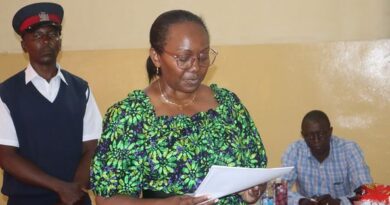Zambia’s Medium-Term Growth Plans Disrupted by External Shocks and Delays in Debt Closure
Zambia’s medium-term growth ambitions are being derailed by recurring external shocks and protracted delays in resolving its debt crisis, says renowned economic expert Mr. Kelvin Chisanga.
Speaking on the country’s economic trajectory, Mr. Chisanga painted a mixed picture, highlighting positive growth prospects undermined by persistent challenges dating back to 2011.
Mr. Chisanga observed that Zambia’s economy has faced a barrage of challenges, beginning with unsustainable debt accumulation between 2011 and 2019, exacerbated by the devastating effects of the COVID-19 pandemic. These pressures have caused severe fiscal deficits and negative economic performance, hampering the implementation of national budgets and stalling progress toward development goals.
“The economy has struggled with widening expenditure gaps, impacting Zambia’s aspirations under its national development plans,” he stated.
Mr. Chisanga emphasized that the medium-term budget framework remains constrained by inflationary pressures, which stem from a mix of external shocks. These include the COVID-19 pandemic, a global fuel crisis since 2020, health emergencies like cholera outbreaks, livestock diseases, and severe droughts that have affected agricultural and energy production.
Looking ahead to 2025, Mr. Chisanga warned that the country is not yet out of the woods. He noted, “Zambia’s medium-term growth prospects remain precarious, marked by complex challenges and economic patterns similar to 2024.”
However, he expressed cautious optimism, citing potential growth drivers in the energy, mining, tourism, and agriculture sectors, provided the government implements sufficient economic buffers and safety nets.
Despite these challenges, Zambia’s non-agricultural and non-mining sectors have shown resilience. “Although mining production has weakened, other sectors have performed strongly, reflecting the economy’s ability to adapt under pressure,” Mr. Chisanga observed.
The economist lauded ongoing policy reforms under Zambia’s IMF-supported program, noting the progress made in fiscal consolidation. “Satisfactory benchmarks have been achieved, thanks to the government’s focus on tight fiscal measures,” he said.
However, he stressed the need for consistency in policy reforms, particularly in social sector support and public resource management, to restore fiscal credibility and ensure debt sustainability.
Mr. Chisanga called for swift progress in Zambia’s debt renegotiation talks, urging the government to reach a comprehensive resolution by the first quarter of 2025.
“We must focus on implementing policy reforms, amending frameworks where necessary, and safeguarding macroeconomic stability. This will enable inclusive and balanced economic growth and development,” he concluded



